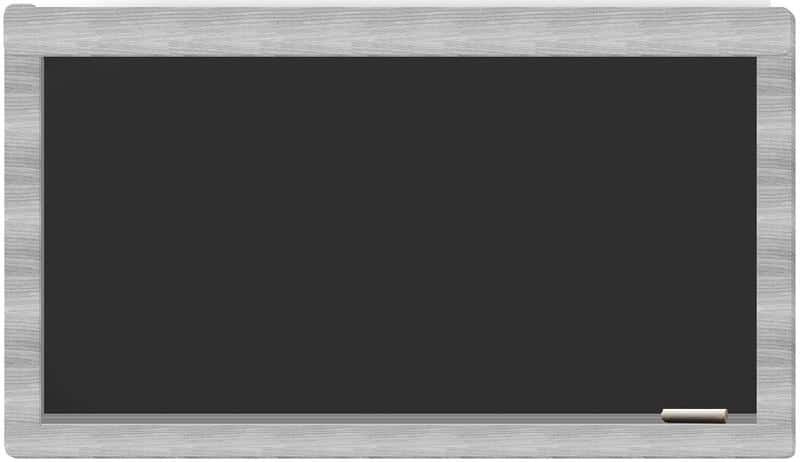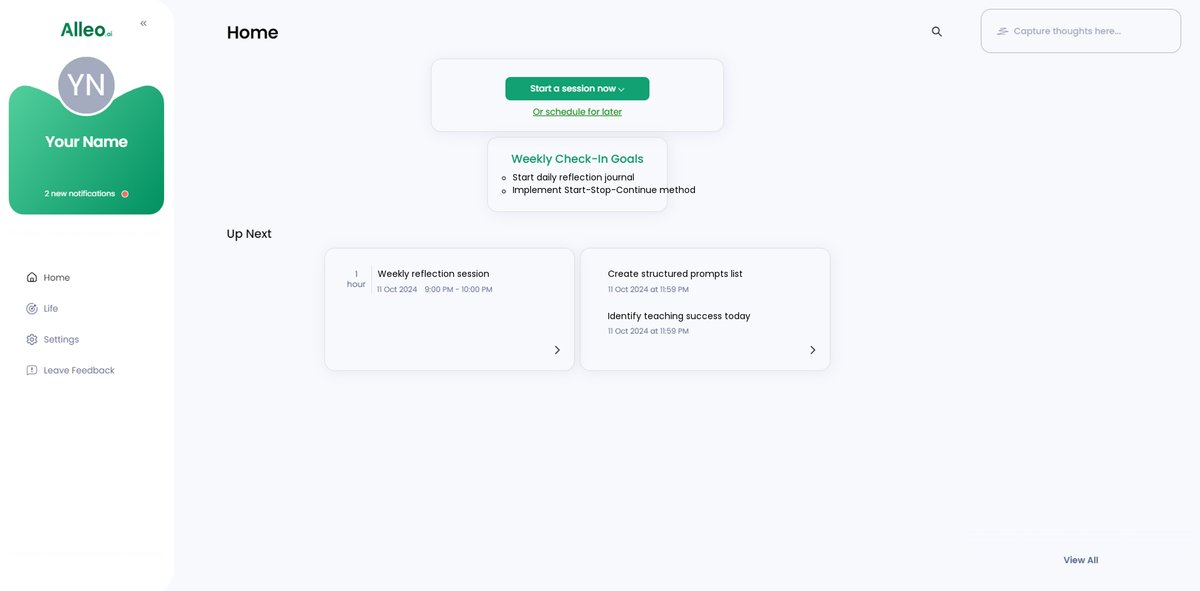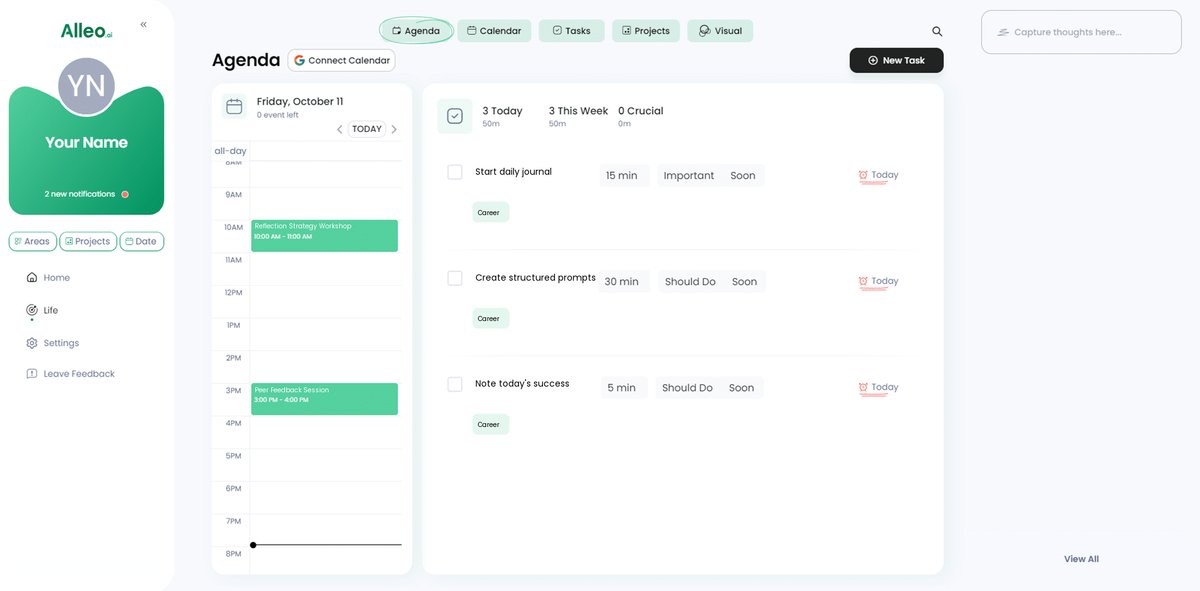6 Powerful Self-Reflection Strategies for Educators: Mastering Journaling Prompts
Have you ever felt like your reflections as an educator are hitting a wall? You’re not alone. Many teachers struggle with effective journaling prompts for teacher reflection.
As a life coach, I’ve helped many professionals navigate these challenges. Educators often struggle to find journaling prompts for teacher reflection that facilitate deep exploration of thoughts and emotions, hindering their professional development.
In this article, you’ll discover strategies like the “Start, Stop, Continue” reflection strategy and structured prompts for critical reflection in teaching.
These teacher reflection tools can enhance self-reflection and improve your teaching practice, contributing to personal growth for educators.
Let’s dive into these effective teaching strategies and self-improvement techniques for teachers.

Understanding the Challenges of Self-Reflection for Educators
Many educators struggle with self-reflection, feeling stuck or lacking depth in their insights. This can leave you frustrated and hinder your professional development for teachers.
For example, several clients report feeling overwhelmed by the journaling process, unsure where to begin with journaling prompts for teacher reflection.
Additionally, finding the right prompts is a common challenge. Without effective journaling for teacher growth, reflections can become repetitive and superficial.
This lack of meaningful self-reflection can impede your ability to connect theoretical knowledge with practical experience, hindering critical reflection in teaching.
To address this, you need strategies that provide structure and depth for reflective teaching practices. Let’s explore some effective teaching strategies and self-improvement for teachers.

Key Strategies for Effective Self-Reflection Through Journaling
Overcoming this challenge requires a few key steps. Here are the main areas to focus on to make progress with journaling prompts for teacher reflection.
- Use “Start, Stop, Continue” Reflection Strategy: Identify what to start, stop, and continue in your reflective teaching practices.
- Implement Structured Prompts for Deeper Insight: Use tailored journaling prompts for teacher reflection to explore teaching experiences deeply.
- Practice Metacognition Through Daily Journaling: Reflect on your thought processes daily as part of your professional development for teachers.
- Apply “Roses, Thorns, and Buds” Approach: Reflect on successes, challenges, and future opportunities regularly using this self-assessment technique for educators.
- Reflect on Successes, Not Just Challenges: Document and analyze your daily teaching successes through journaling for teacher growth.
- Incorporate Peer Feedback in Reflections: Share journals and gain insights from peers to enhance critical reflection in teaching.
Let’s dive in to explore these effective teaching strategies and teacher reflection tools!
1: Use “Start, Stop, Continue” reflection strategy
Using the “Start, Stop, Continue” reflection strategy can significantly improve your self-reflection as an educator, serving as effective journaling prompts for teacher reflection.
Actionable Steps:
- Identify three key areas to reflect on. Determine what to start, what to stop, and what to continue in your teaching practice, incorporating reflective teaching practices.
- Schedule weekly reflection sessions. Consistently use this strategy to evaluate your progress and make necessary adjustments, supporting professional development for teachers.
- Share reflections with a peer or mentor. Gain additional insights and perspectives to enhance your self-assessment techniques for educators.
Explanation: Implementing the “Start, Stop, Continue” strategy offers structure and clarity to your reflections, promoting journaling for teacher growth.
This method helps in identifying actionable changes and improvements in your teaching practice, fostering critical reflection in teaching.
Regularly sharing your reflections with a peer or mentor can provide valuable feedback and foster a supportive learning environment. For more on effective reflection strategies, visit Edutopia.
This approach can set a solid foundation for deeper, more meaningful self-reflection, contributing to personal growth for educators and effective teaching strategies.
Let’s move on to the next strategy.

2: Implement structured prompts for deeper insight
Implementing structured journaling prompts for teacher reflection is crucial for guiding deeper exploration in your reflections as an educator.
Actionable Steps:
- Create or find tailored prompts. Develop journaling prompts for teacher reflection that are specific to your teaching experiences and challenges.
- Use prompts weekly. Dedicate time at the end of each week to reflect on these prompts and gain insights, enhancing your reflective teaching practices.
- Analyze responses over time. Regularly review your journal entries to identify patterns and areas needing improvement, supporting your professional development as a teacher.
Explanation: Structured prompts provide a focused framework, helping you delve deeper into your experiences and thoughts. This method enhances the quality of reflections, making them more meaningful and actionable for effective teaching strategies.
According to USC’s Writing Guide, this approach connects theoretical knowledge with practical experience, which is crucial for professional growth and critical reflection in teaching.
Key benefits of structured prompts include:
- Enhanced focus and clarity in reflections, supporting self-assessment techniques for educators
- Deeper exploration of specific teaching aspects, promoting mindfulness in education
- Consistent framework for ongoing improvement and personal growth for educators
Start using structured journaling prompts for teacher reflection to enrich your self-reflection and support your self-improvement as a teacher today.

3: Practice metacognition through daily journaling
Practicing metacognition through daily journaling helps you understand and reflect on your thought processes as an educator, serving as effective journaling prompts for teacher reflection.
Actionable Steps:
- Dedicate daily time. Set aside 10-15 minutes each day to journal about your teaching experiences and thoughts, enhancing your reflective teaching practices.
- Focus on thought processes. Reflect on how you approached different teaching scenarios and what influenced your decisions, promoting critical reflection in teaching.
- Set monthly goals. Based on your journaling insights, establish monthly objectives to improve your teaching practices and support professional development for teachers.
Explanation: Engaging in daily journaling fosters continuous self-awareness and helps in identifying areas for growth, acting as a powerful self-assessment technique for educators.
This method supports deep thinking and connects with industry trends emphasizing reflective practice and journaling for teacher growth.
According to Greater Good, regular metacognitive activities are essential for personal growth for educators and professional development.
By implementing daily journaling, you can gain valuable insights and enhance your teaching journey, contributing to effective teaching strategies and self-improvement for teachers.

4: Apply “roses, thorns, and buds” approach
Applying the “roses, thorns, and buds” approach can provide a balanced perspective on your teaching experiences and serve as effective journaling prompts for teacher reflection.
Actionable Steps:
- Identify daily reflections. At the end of each school day, note one success (rose), one challenge (thorn), and one opportunity (bud) related to your teaching, incorporating reflective teaching practices.
- Document in a journal. Write these reflections in a dedicated journal to track your progress and growth over time, enhancing your professional development as a teacher.
- Review regularly. Periodically review your entries to identify trends and areas for improvement, utilizing self-assessment techniques for educators.
Explanation: This approach helps you acknowledge positive experiences, address challenges, and identify future opportunities. It promotes a holistic view of your teaching journey and supports personal growth for educators.
According to Sage Rountree, such reflective practices are essential for continuous improvement and professional growth.
By implementing this approach, you can gain valuable insights and enhance your teaching journey through journaling for teacher growth and critical reflection in teaching.

5: Reflect on successes, not just challenges
Reflecting on your successes as an educator is crucial for building confidence and recognizing your strengths. Using journaling prompts for teacher reflection can help in this process.
Actionable Steps:
- Keep a success journal. Document at least one teaching success each day. This helps you focus on positive outcomes and supports reflective teaching practices.
- Analyze what made these successes possible. Reflect on the strategies and actions that led to successful outcomes and how you can replicate them, incorporating critical reflection in teaching.
- Share successes with colleagues. Foster a positive and supportive environment by discussing your achievements with peers, contributing to professional development for teachers.
Explanation: Reflecting on successes can boost your confidence and highlight effective teaching strategies. This approach aligns with industry trends emphasizing positive reinforcement and continuous improvement, supporting personal growth for educators.
According to Edutopia, acknowledging successes is as important as addressing challenges for professional growth.
Benefits of reflecting on successes:
- Boosts self-confidence and motivation
- Identifies effective teaching strategies
- Creates a positive mindset for growth and self-improvement for teachers
By regularly reflecting on your successes through journaling for teacher growth, you can create a more balanced and effective self-reflection practice, enhancing your self-assessment techniques as an educator.

6: Incorporate peer feedback in reflections
Incorporating peer feedback into your reflections is crucial for gaining diverse perspectives and enhancing your teaching practice. This approach aligns with reflective teaching practices and promotes professional development for teachers.
Actionable Steps:
- Establish a feedback group. Form a group with fellow educators to regularly exchange journals and provide constructive feedback on journaling prompts for teacher reflection.
- Schedule regular feedback sessions. Set specific times to review and discuss each other’s reflections, ensuring consistency and depth in critical reflection in teaching.
- Implement suggestions. Act on the feedback received to refine your teaching methods and self-reflection practices, supporting personal growth for educators.
Explanation: Engaging with peers offers new insights and promotes collaborative growth. This approach aligns with trends emphasizing continuous improvement and reflective practice, enhancing self-assessment techniques for educators.
According to Greater Good, peer feedback fosters a supportive environment, enhancing both personal and professional development.
Ways to maximize peer feedback:
- Be open to constructive criticism
- Ask specific questions for targeted advice on effective teaching strategies
- Offer thoughtful feedback in return, supporting journaling for teacher growth
By integrating peer feedback, you can enrich your reflections and teaching journey, contributing to self-improvement for teachers and mindfulness in education.

Partner with Alleo on Your Reflection Journey
We’ve explored the challenges of self-reflection and effective journaling prompts for teacher reflection. Did you know you can work directly with Alleo to make this journey easier and faster, enhancing your reflective teaching practices?
Start by setting up an account and creating a personalized plan. Alleo’s AI coach provides tailored journaling prompts for teacher reflection and feedback, supporting your professional development as an educator.
Receive reminders for daily and weekly reflections, incorporating mindfulness in education. Alleo tracks your progress and offers insights to improve your teaching practice, promoting critical reflection in teaching.
Ready to get started for free and explore effective teaching strategies through journaling for teacher growth? Let me show you how!
Step 1: Log In or Create Your Account
To begin your self-reflection journey with Alleo, Log in to your account or create a new one to access personalized journaling prompts and AI-powered coaching tailored to your teaching practice.

Step 2: Choose “Build Better Habits and Routines”
Click on “Build Better Habits and Routines” to focus on developing consistent reflection practices that will enhance your teaching effectiveness and address the challenges of meaningful self-reflection discussed in the article.

Step 3: Select “Career” as Your Focus Area
Choose “Career” as your focus area to align with your goals as an educator, allowing Alleo’s AI coach to provide targeted prompts and insights that will enhance your teaching practice and professional growth.

Step 4: Starting a coaching session
Begin your journey with Alleo by scheduling an intake session, where you’ll collaboratively create a personalized plan to enhance your teaching reflections and set achievable goals for your professional growth.

Step 5: Viewing and Managing Goals After the Session
After your coaching session, check the home page of the Alleo app to view and manage the goals you discussed, allowing you to track your progress and stay focused on your teaching reflections.

Step 6: Adding events to your calendar or app
Use Alleo’s calendar and task features to schedule your reflection sessions and track your progress in addressing teaching challenges, allowing you to seamlessly integrate your journaling practice into your daily routine.

Empower Your Teaching Journey with Meaningful Reflections
As we wrap up, let’s remember the power of effective self-reflection through journaling prompts for teacher reflection.
By using reflective teaching practices like “Start, Stop, Continue” and structured prompts, you can deepen your insights and enhance your professional development as a teacher.
Daily journaling and reflecting on both successes and challenges will build a more balanced perspective, supporting your personal growth as an educator.
Incorporating peer feedback adds a layer of valuable insights from others, contributing to your self-assessment techniques as an educator.
I understand that finding the right journaling prompts for teacher reflection can be tough, but these methods can make a big difference in your teaching strategies.
Why not give it a try?
Start implementing these critical reflection in teaching strategies today and see the transformation in your teaching practice.
Alleo is here to help you on this journey of self-improvement for teachers. Set up your account and let’s get started with effective teaching strategies.
Empower your teaching journey—one journal entry at a time using mindfulness in education techniques.